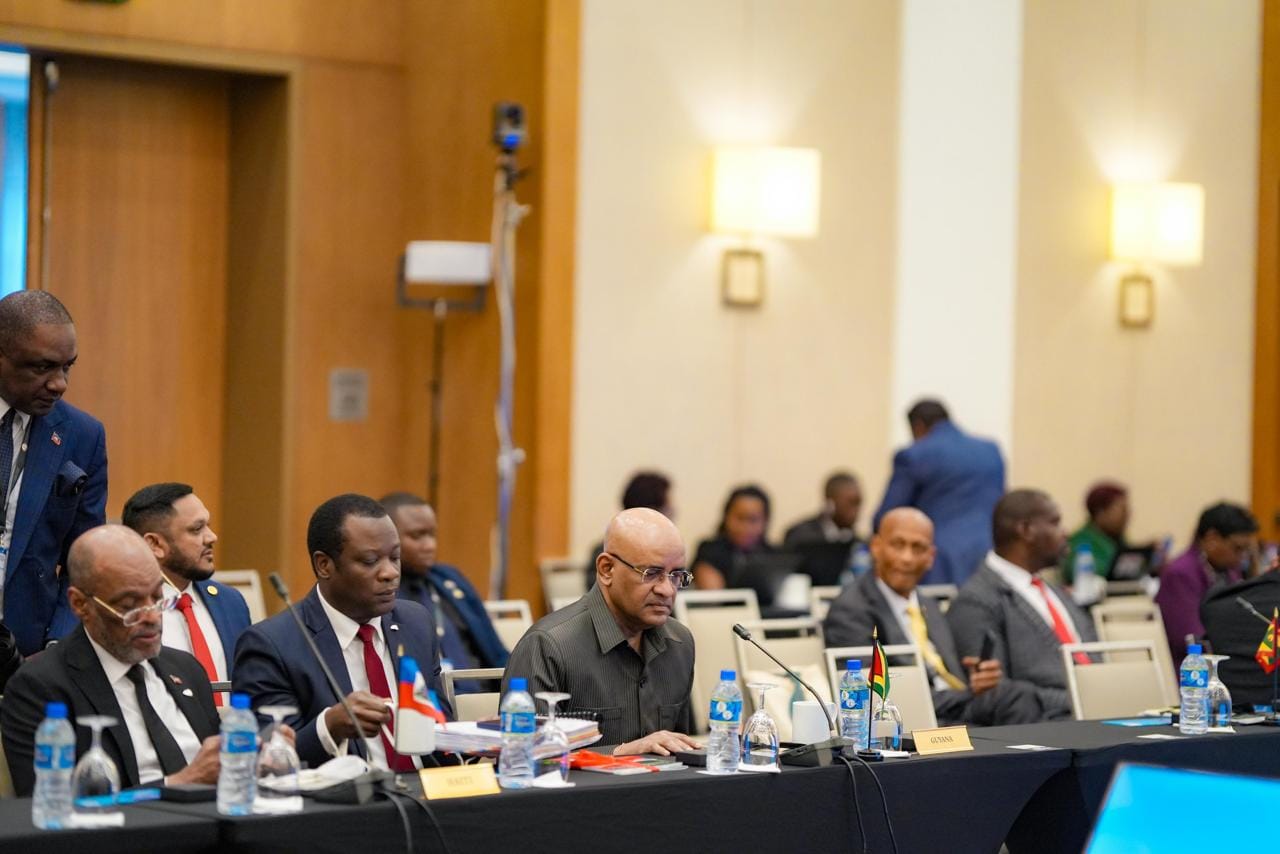
Restrictions to the free movement of goods within the Caribbean Community (CARICOM) are discussed at multiple regional meetings and Guyana’s Vice President Dr. Bharrat Jagdeo believes no further talks are needed.
Instead, he posits that commitment from countries that maintain the barriers is needed so that intra-regional trade and food security efforts can be strengthened.
“Those countries who are the offending countries, they know who they are, so you need national commitment to remove those barriers and collective commitment for broadening trade in the region,” Jagdeo said on Monday at the sidelines of this week’s meeting of CARICOM leaders in Georgetown.
He emphasised, “It’s not dependent on a decision made at the Heads of Government level but it’s dependent on a commitment at each individual country.”

Trade barriers have been an issue for decades; they include non-tariff barriers such as quotas, embargoes, sanctions and levies and affects some exports to CARICOM markets.
Jagdeo explained that tariffs are no longer huge impediments; phytosanitary measures, he said, impede trade now.
Essentially, these measures are quarantine and biosecurity measures implemented by countries to help safeguard against the spread of pests or diseases that may be in agricultural products.
But he believes phytosanitary measures are “capriciously” applied. So technical work is needed to promote trade while simultaneously guaranteeing health and safety.
On Sunday, Guyana’s President and incumbent CARICOM Chairman Dr. Irfaan Ali urged Caribbean citizens to pressure their leaders into removing trade barriers that have long constrained greater regional food security efforts.
Doing so, he reasoned, will help the region to produce more food, increase intra-regional trade and cut out expensive food imports from outside the Caribbean.
Neither Guyanese official named countries who maintain these barriers but honey import and transshipment restrictions in Trinidad and Tobago have been a consistent complaint of the Guyanese private sector.
Trinidad and Tobago’s honey, bees and bee products are guided by the island’s age-old Food and Drug Act of 1960 and Beekeeping and Bee products Act of 1935. And as per the country’s Beekeeping and Bee Products Act, only honey originating from the Windward and Leeward Islands can be transshipped there.












100% on point
on that not Mr vice the footing begins